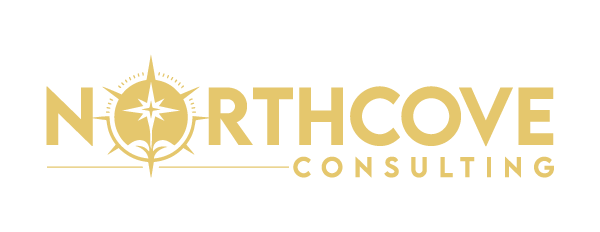
How to Use Executive Compensation Benchmarking to Attract Top Talent
Hiring leaders today takes more than a handshake and a good title—it takes competitive, well-structured offers backed by data. And that’s where executive compensation benchmarking comes in.
Top-tier candidates don’t just expect solid pay—they expect packages that reflect their market value, your company’s ambition, and their ability to deliver results. According to a recent Willis Towers Watson report, companies that use executive compensation benchmarking are 30% more likely to retain top-performing leaders.
This guide walks you through how to use executive compensation benchmarking strategically, helping you build smarter offers and strengthen your ability to recruit and retain elite leadership talent. You’ll also see how it connects with your HR policy development process and broader business goals.
What Is Executive Compensation Benchmarking?
Executive compensation benchmarking is the practice of comparing your leadership pay packages—base, bonuses, equity, and benefits with what similar companies offer. Done right, it keeps your offers competitive and fair.
Core goals of executive compensation benchmarking:
- Compete for top-tier candidates
- Retain leadership long term
- Avoid under- or over-paying
- Align compensation with company growth and risk tolerance
Unlike general employee pay reviews, this requires strategic analysis tied to performance metrics and future business outcomes, including projections like C-suite compensation analysis 2025.
Key Components of an Executive Compensation Benchmarking Report
A quality compensation benchmarking report gives you a snapshot of where you stand in the market and what it takes to compete for top leaders.
Component | What It Tells You |
Market Median Compensation | Typical executive base pay, bonuses, and equity |
Percentile Ranges (25th–75th) | Your competitive position among peers |
Total Direct Compensation | The full picture—base + bonus + long-term incentives |
Peer Group Comparisons | Executive Pay Scale Comparison Across Companies |
Long-Term Incentive Values | Stock awards, performance shares, or options offered |
Equity vs. Cash Mix | Breakdown of compensation structure and risk appetite |
This data becomes even more powerful when linked with your employee benefits communication strategy to strengthen recruitment and negotiation efforts.
Using Executive Pay Benchmarking Tools Effectively
Having the right benchmarking tools differentiates between guesswork and smart decision-making. These platforms use real-world data from SEC filings, private databases, and compensation surveys.
Top tools to explore:
- Equilar – Deep insights from public company filings
- Radford – Tailored for fast-growth tech and life science firms
- Mercer WIN – Broad industry coverage and international benchmarking
- Salary.com CompAnalyst – User-friendly dashboards and tools
- Willis Towers Watson – Great for financial services and custom peer groups
Use these tools wisely:
- Define your peer group first: same size, sector, region
- Validate findings by comparing across 2–3 platforms
- Refresh your benchmarks every 12–18 months
For next-level insights, layer this data with your compensation consulting services to get a pay scale comparison and shape a sustainable leadership pay strategy.
How to Benchmark Executive Compensation Packages Step by Step
Here’s how to benchmark compensation packages from theory to practice, without the confusion.
Step-by-step guide:
- Define Key Roles
Identify the executive positions to benchmark: CEO, CFO, etc. - Choose a Peer Group
Use companies with similar headcount, revenue, and growth trajectory. - Gather Your Data
Pull insights from compensation reports, industry surveys, and tools. - Break Down Compensation
Look at salary, bonuses, stock options, retirement plans, and perks. - Find Your Positioning
Compare your offer to 25th, 50th, and 75th percentile ranges. - Match with Strategy
Align rewards with KPIs, company goals, and performance triggers. - Review and Finalize
Present findings to your board or compensation committee for sign-off.
These insights are often part of broader total rewards consulting company strategies that blend pay with performance and retention planning.
Benchmarking Executive Salaries by Industry
Pay norms shift drastically depending on your industry. That’s why benchmarking salaries by industry is critical—what’s generous in retail might be underwhelming in tech.
By sector:
- Tech: Smaller base, bigger equity stakes
- Finance: High salary + structured bonus plans
- Healthcare: Balanced base and variable pay tied to patient outcomes or revenue
- Manufacturing: Mid-range salary, strong performance bonuses
Cross-reference with CEO compensation data to validate your offers and avoid overextending or under-delivering.
Best Practices in Executive Compensation Benchmarking
Get more out of your benchmarking efforts by keeping these practices in executive compensation benchmarking in mind:
Do:
- Refresh your data at least yearly
- Pick a broad peer group to avoid bias
- Back decisions with third-party advisors
- Keep communication clear with internal stakeholders
Don’t:
- Use outdated, one-size-fits-all benchmarks
- Focus only on base salary, consider the full package
- Skip documentation, it’s key for the board and audit trails
- Overlook your company’s internal equity ratios
Tie this work into your larger HR policy development process to create alignment between policy, pay, and performance culture
Integrating Executive Compensation Benchmarking into Your Talent Acquisition Strategy
Want to win the attention of top-tier leaders? It takes more than just a paycheck. Today’s execs are weighing the whole package—equity, incentives, benefits, and growth potential. That’s where executive compensation benchmarking comes into play.
When you weave it into your talent acquisition strategy, you stop guessing and start closing.
Here’s what it helps you do:
- Build offers that compete and win in your industry
- Negotiate with speed and confidence because your data backs you up
- Tie pay to what matters, like KPIs and performance outcomes
Let’s say you’re eyeing a candidate in tech or healthcare. With solid benchmarking, you’ll know what leaders in similar roles are earning—not just base pay, but the whole rewards picture. That means you can create an offer that feels right-sized, transparent, and worth saying yes to.
When executives see that your offer is grounded in real numbers, not inflated guesses—they take your company seriously. And that credibility can tip the scales in your favor.
Avoiding Overpaying or Underpaying: The Risk of Not Using Executive Compensation Benchmarking
Skipping compensation benchmarking? That’s risky business.
Here’s what can go wrong:
- You overpay for average talent, wasting budget on candidates who don’t deliver
- You lowball top performers, who walk away or leave six months later
- You create internal tension when new hires earn more than current leaders
Without benchmarking, you’re working in the dark. With it, you get clear percentile data—25th, 50th, 75th—for similar roles. That clarity lets you strike the balance between staying competitive and keeping costs in check.
More than a pay calculator, benchmarking is your compass. It helps shape a fair, flexible pay strategy that grows with you and makes your next leadership hire a win for everyone.
Real-World Example: Attracting a CFO with Market-Based Benchmarking
A mid-size SaaS company in healthcare tech was losing top CFO candidates due to underwhelming offers. After hiring a compensation consulting service, they ran a detailed executive compensation benchmarking analysis.
The result?
They were 22% under the market median.
Using this insight, they restructured their offer:
- Competitive salary
- Performance-based bonus
- Long-term stock options
- Clear growth incentives
Within weeks, they hired a CFO with deep industry experience. Even better, the board had the data to justify every number.
Conclusion: Make Smarter Decisions with Executive Compensation Benchmarking
Compensation benchmarking gives you the edge in a world where talent is the biggest differentiator. It’s how you build competitive offers, keep your leadership bench strong, and make pay decisions that hold up internally and in the market.
With a smart process, the right tools, and a clear strategy, you’ll attract leaders who deliver. And when that happens, your business doesn’t just grow—it thrives. Need help getting there? Northcove Consulting offers personalized support, benchmarking analysis, and full-scale executive pay solutions, C-suite compensation analysis 2025, to help you lead with confidence.
Contact for all HR related services through email: [email protected] or call: (877) 595-3087, or you can visit our website to explore the full range of services.
Frequently Asked Questions
What is executive compensation benchmarking?
Compensation benchmarking is the process of comparing executive pay with peer organizations to stay competitive and aligned with market expectations.
How often should executive compensation be benchmarked?
Every 12–18 months or during leadership transitions and major market shifts.
What is used as CEO compensation benchmarking data?
Public filings, surveys, and third-party benchmarking platforms like Mercer, Equilar, and Radford.
Is benchmarking just about salary?
No—it includes bonuses, equity, benefits, perks, and total compensation packages.
How does it help in recruitment?
It ensures your offers meet market standards, making it easier to attract and close with top-tier talent.
Related Posts
How Compensation Benchmarking Tools Help HR Make Data Driven Pay Decisions
How Compensation Benchmarking Tools Help HR Make Data Driven Pay Decisions Today’s changing work environment…
Employee Handbook Best Practices Every Small Business Should Follow
Employee Handbook Best Practices Every Small Business Should Follow An HR management consulting company recognizes…
How an Interim Total Rewards Consultant Can Optimize Your Compensation Strategy Fast
How an Interim Total Rewards Consultant Can Optimize Your Compensation Strategy Fast When companies face…
How to Build Effective Total Rewards Communication Strategies That Employees Understand
How to Build Effective Total Rewards Communication Strategies That Employees Understand Employees want to feel…







